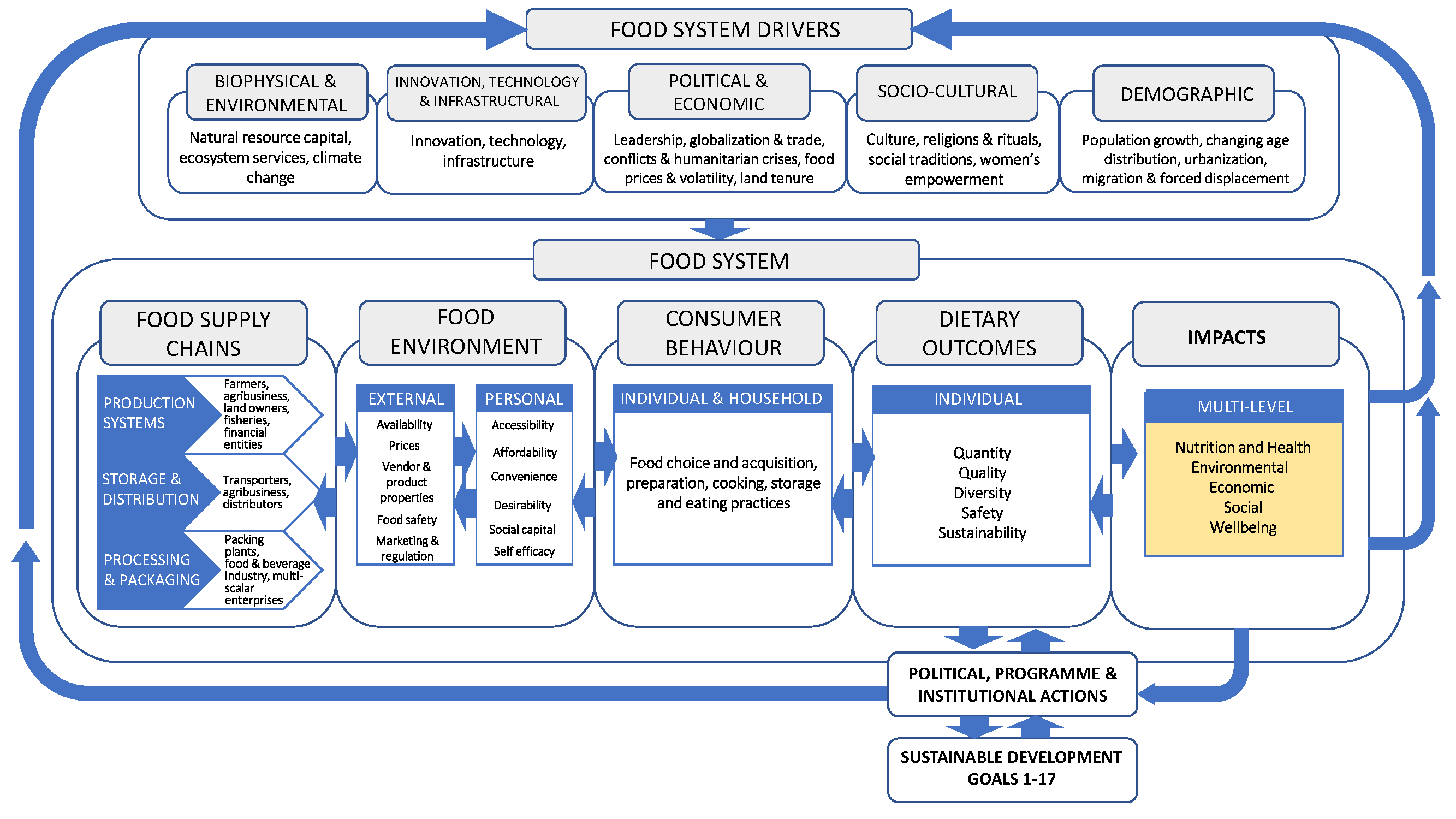The food system is a complex web of all the activities (and beliefs and values that shape those activities) associated with food production, transportation, consumption and waste disposal

Food systems framework adapted from HLPE Nutrition and Food Systems Report 2017
- soil health is essential
- diversity builds resilience - homogenization reduces it
- Regenerative Agriculture
- food systems as key leverage point for biosphere stewardship
Some Facts
From article: Can we ditch intensive farming - and still feed the world?
-
Food production will have to grow by 50 percent by 2050 to feed the growing population
- Most food is produced by small farms → Localism
-
There are more than 570m farms worldwide; more than 90% are run by an individual or family and rely primarily on family labour. They produce about 80% of the world’s food
-
AO considers investment in smallholder production “the most urgent and secure and promising means of combating hunger and malnutrition, while minimising the ecological impact of agriculture”.
-
From Papers - Anatomy and resilience of the global production ecosystem by Nyström et al
agricultural intensification has been reported to cause soil erosion, declines in fertility, loss of natural pollinators, downstream damage to water resources and degradation of coastal ecosystems38,51
Consumption of internationally traded food
Approximately one quarter of all food produced for human consumption is traded internationally24, and almost one billion people are consuming internationally traded products to cover their daily nutrition
Related: complex adaptive systems | biosphere stewardship